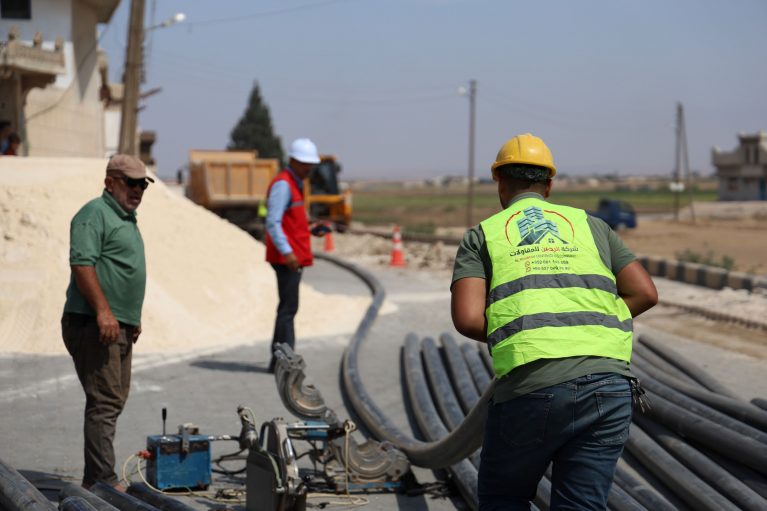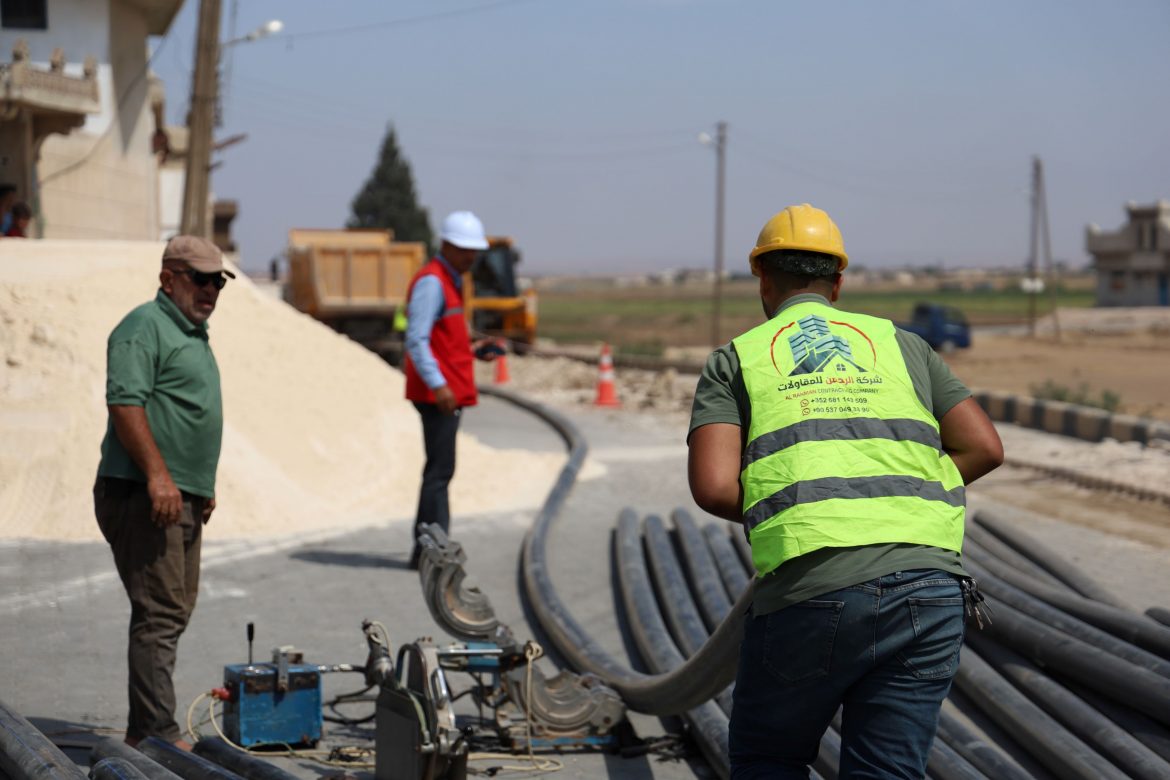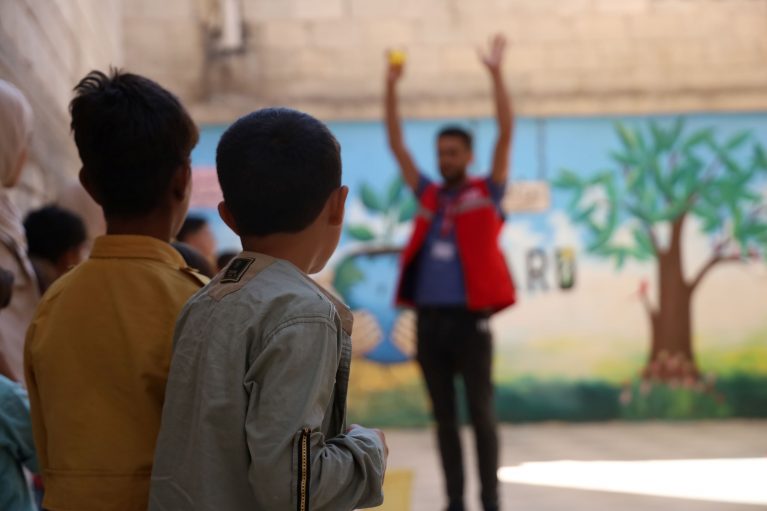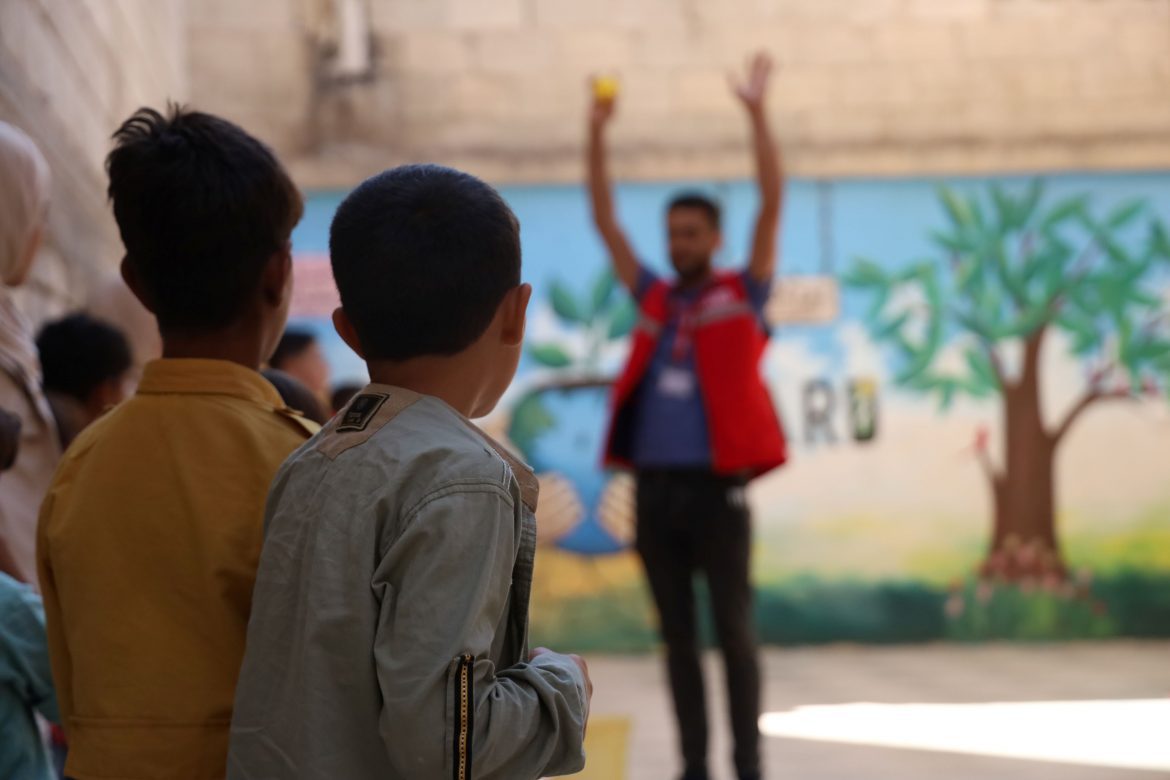Reconstruction and Child Protection in Syria
In northwestern Syria, the Hemaya Project by Solidar Suisse, in collaboration with local partner SARD, supports affected households through the reconstruction of shelters, infrastructure rehabilitation, income-generating measures, and targeted child protection. These interventions not only alleviate immediate hardship but also strengthen the long-term resilience of the affected communities.
Long-Term Impact of the Earthquakes
The earthquake caused massive destruction to housing and infrastructure, devastating the livelihoods of numerous families in northwestern Syria. Particularly vulnerable groups such as internally displaced persons (IDPs), children, and people with special needs have been severely affected. Even before the disaster, people in the region were suffering from the consequences of the Syrian civil war (2011–2024), which displaced millions and destroyed large parts of the country. After more than a decade of conflict—marked by humanitarian crises, economic collapse, and a lack of infrastructure—the earthquakes hit these communities especially hard.
In addition to repairing shelters, water pipelines are also being rehabilitated in northwestern Syria, as seen here in Dwebiq. © SARD/Solidar Suisse
Comprehensive Approach
Through the Hemaya Project, we collaborate with local partner SARD to support earthquake-affected communities in northwestern Syria in rebuilding their livelihoods, creating safer housing, and providing targeted child protection. By offering training, repairs, and psychosocial support, the project enhances community resilience and provides hope for a better future. Taking a multisectoral approach, the Hemaya Project addresses the most urgent needs while also laying the foundation for sustainable recovery and resilience.
Income Promotion
A key objective of the project is the economic recovery of those affected. Business management training enables participants to develop business plans, stabilize their financial situation, and create independent income sources. These training sessions have been described by participants as highly valuable and empowering. They not only provide practical skills but also offer concrete pathways out of financial insecurity and towards economic independence.
Shelter and Infrastructure Rehabilitation
A major focus of the project is the repair of shelters and infrastructure to sustainably improve the lives of earthquake-affected families. Financial grants and technical support enable the renovation of damaged housing, ensuring safer and more hygienic living conditions, particularly for vulnerable individuals, such as people with special needs. Beneficiaries emphasize the increased sense of security, dignity, and normalcy that the renovated shelters provide. Additionally, community infrastructure such as schools, water supply, and sanitation networks is being restored to meet essential needs and improve overall living conditions. Children can safely return to school, and hundreds of households benefit from improved hygiene and health standards, making daily life significantly easier and strengthening community resilience.
Child Protection and Psychosocial Support
Mobile teams and child-friendly spaces provide psychosocial support and structured activities for unaccompanied, separated, and vulnerable children, helping them regain emotional security and cope with trauma. For parents, we offer training sessions to help them emotionally support their children, understand difficult behaviors, and cope with the effects of trauma. Additionally, community events raise awareness on child rights, early marriage, and abuse, ensuring sustainable child protection within affected communities.
A key focus of the project is activities for the youngest children in child-friendly spaces. © SARD/Solidar Suisse



